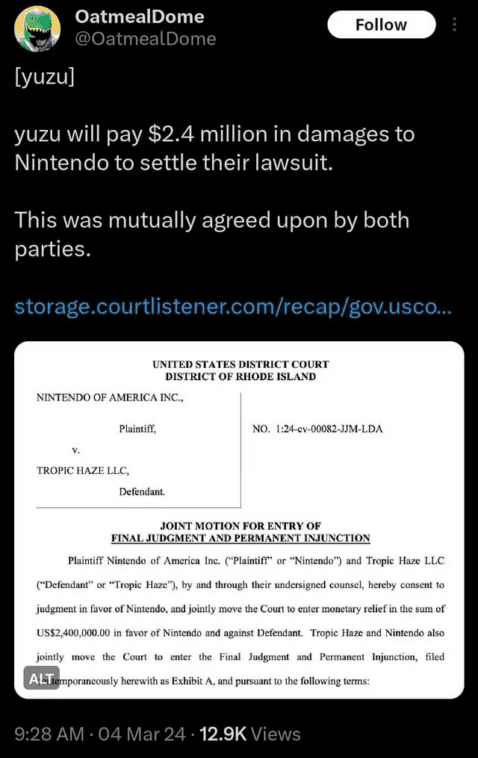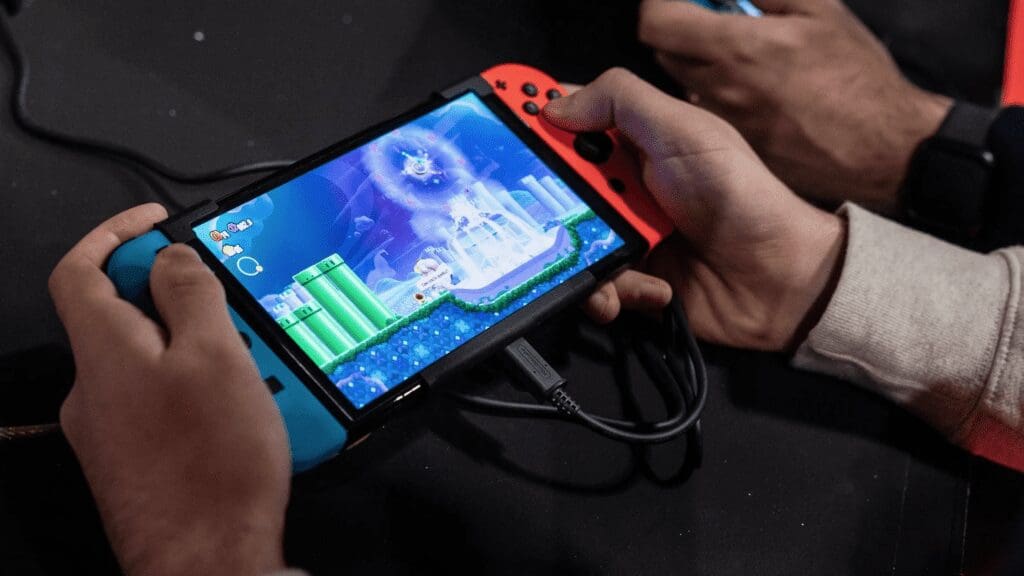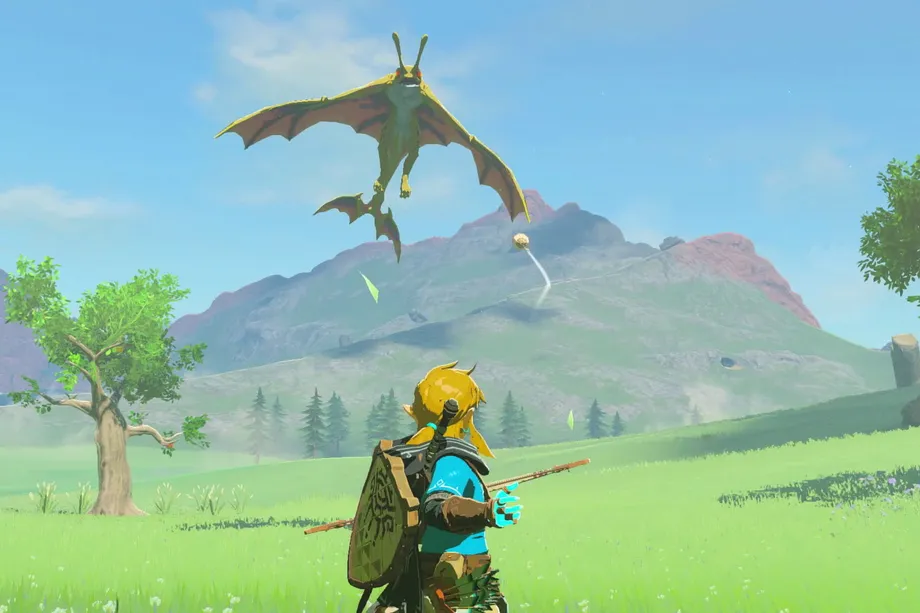
For gamers around the world, the name Nintendo evokes a sense of nostalgia and joy. However, in recent years, the company has also become synonymous with aggressive legal actions, particularly when it comes to protecting its intellectual property (IP) and combating emulation.
At the center of this ongoing battle is the Nintendo Switch, the company’s wildly popular hybrid console that has captured the hearts of millions. While the Switch’s success is undeniable, it has also made the Switch a prime target for emulation efforts, with developers seeking to recreate the console’s experience on other platforms.
Enter Yuzu, an open-source emulator that has gained significant traction among enthusiasts and pirates alike. Yuzu allows users to run Nintendo Switch games on their computers, potentially offering better performance and visual enhancements compared to the original hardware.
RELATED: Nintendo Switch 2 Rumored Backwards Compatibility and NVIDIA Partnership Hinted

Nintendo, unsurprisingly, has taken a hard stance against Yuzu and other emulation projects. The company views emulation as a form of piracy—a threat to its business model and a violation of its intellectual property rights.
According to court documents, Nintendo and Yuzu’s creators, Tropic Haze, jointly filed for a final judgment and permanent injunction on Monday. Nintendo had accused Tropic Haze of copyright infringement, evading Nintendo Switch’s protections, and selling those circumvention technologies as Yuzu, among other offenses.
While the legality of emulation remains a contentious issue, Nintendo’s aggressive approach is not surprising. The company has a long history of aggressively defending its IP, often taking legal action against fan projects, ROM sites, and other perceived threats.

RELATED: Video Display Analyst Confirms Nintendo Switch Sequel Releases Late 2024 With No OLED Screen
Supporters of emulation argue that projects like Yuzu serve an important purpose in preserving gaming history and ensuring that older titles remain accessible. As hardware ages and becomes obsolete, emulators provide a way to keep classic games alive and playable on modern systems.
In a statement made on Discord, Yuzu maker Bunnei confirmed that anything related to Yuzu will come offline. “Piracy was never our intention, and we believe that piracy of video games and on video game consoles should end. Effective today, we will be pulling our code repositories offline, discontinuing our Patreon accounts and Discord servers, and, soon, shutting down our websites,” Bunnei wrote. “We hope our actions will be a small step toward ending piracy of all creators’ works.”
However, Nintendo and other game publishers view emulation as a gateway to piracy, enabling users to play games without purchasing legitimate copies. This concern is heightened when emulators target current-generation consoles like the Nintendo Switch, potentially undermining sales and revenue streams.

The Yuzu controversy highlights the ongoing tension between preservation efforts and intellectual property rights. While emulation enthusiasts champion the importance of preserving gaming history, companies like Nintendo prioritize protecting their investments and preventing unauthorized access to their copyrighted works.
RELATED: Palworld Gets Legal Threat From Nintendo Over Alleged Use Of Pokemon Assets
Despite the legal risks, the allure of emulation remains strong, particularly for the Nintendo Switch. The console’s relatively modest hardware specifications make it an attractive target for emulation, as more powerful computers and devices can potentially offer superior performance and visual enhancements.

Moreover, the Switch’s hybrid nature—allowing for both handheld and docked gameplay—has added to the appeal of emulation. Yuzu, for instance, enables users to play Switch games on a wide range of devices, including Android smartphones and tablets, further expanding the potential audience.
One of the key concerns for Nintendo is the potential for emulators like Yuzu to facilitate piracy and unauthorized access to its games. Reports have surfaced of users playing leaked copies of highly anticipated titles, such as “The Legend of Zelda: Tears of the Kingdom,” before their official release dates, thanks to emulation.
Ultimately, the conflict between Nintendo and emulation projects like Yuzu highlights the complex intersection of intellectual property rights, preservation efforts, and the evolving landscape of gaming. As technology continues to advance, finding a balance between protecting creators’ rights and ensuring access to gaming history will remain a challenging task for all stakeholders involved.

Leave a Reply